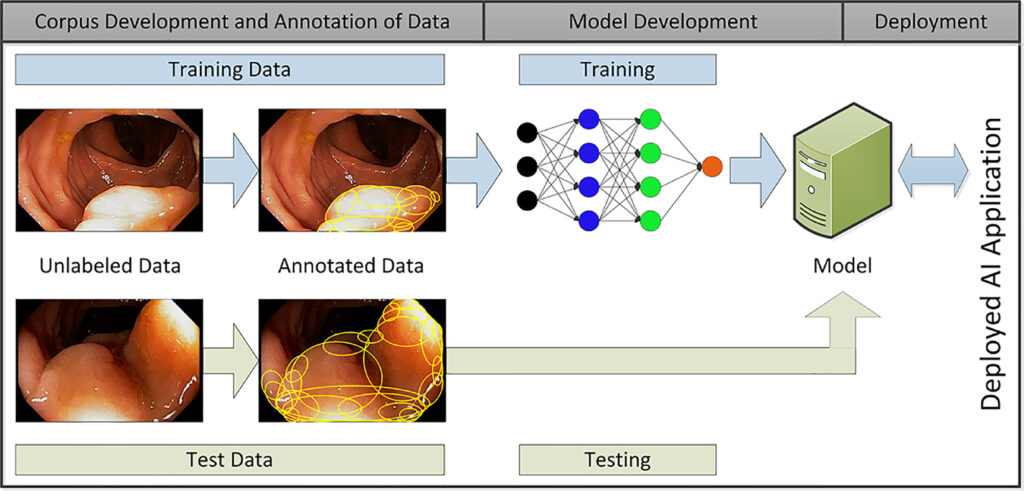Let us explore the exciting realm of using AI in Gastrointestinal (GI) medicine. Recently, UC Davis hosted a conference specifically dedicated to exploring the current opportunities in this field. I had the privilege of attending it and am eager to share some insightful talks I listened to.
To begin, let us focus on a crucial aspect: colon cancer and adenoma detection rate, particularly in the context of colonoscopy.
Colonoscopy screenings are recommended starting at age 45 to detect and prevent colorectal cancer. GI Genius, for instance, is a tool designed to assist gastroenterologists during endoscopy procedures. It was trained based on labeled endoscopy data, as shown in the picture below. How does it work? Well, picture this: During the endoscopy, it highlights suspicious areas with a small square or blue mark when it detects a polyp so that the endoscopist will pay attention to it. Pretty cool!
While seasoned GI experts may not necessarily rely on such aids, it can benefit less experienced physicians.
Moreover, it can alleviate the fatigue experienced by GI physicians after performing multiple endoscopies in a single session, providing an extra set of eyes.
However, here is an interesting observation: the incidence of colorectal cancer tends to be higher in patients who have never undergone colonoscopy or have had subpar bowel preparation, which limits our ability to visualize the colon effectively. The challenge lies in conducting quality endoscopies and convincing patients to undergo the procedure.
This is where AI could play an important role. Imagine an automated system or robot that reaches out to patients, discusses potential barriers they may face with colonoscopy, and educates them about the importance of the procedure. Sounds optimistic for the physician! Our patients might now do the colonoscopy!
In the next post, let us explore the potential of using robots in patients’ rooms.

